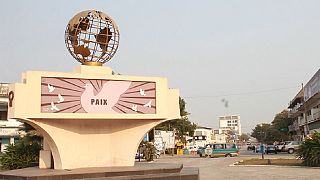Africa
Africa’s oil producing nations have not been spared the impact of the global decision to reduce oil output. About 14 countries in sub-Saharan Africa produce oil, which accounts for most of their annual export income.
Crude oil prices rose marginally on Friday (May 1) as the Organization of Petroleum Exporting Countries (OPEC) and their allies started reducing output.
Major producers in April agreed to a production cut deal by 10 million barrels a day in May and June. The record production cut is a way of balancing the mismatch between supply and demand in global oil prices due to the coronavirus pandemic.
The COVID-19 outbreak has reduced demand for oil due to isolation and travel restrictions measures introduced globally to slowdown the spread of the disease.
Africa’s major oil producers include Nigeria, Angola and Gabon. A rise in oil prices between $50 to $60 would allow them to earn badly needed foreign exchange to carry out development projects.
The World Bank and the IMF have urged African oil producing nations to diversify their economies to reduce their over-dependence on oil to improve the living standards of their people.





![Africa's hight cost of climate change [Business Africa]](https://static.euronews.com/articles/stories/08/77/73/84/320x180_cmsv2_065e40c7-90d8-5143-b8da-c4885db015dc-8777384.jpg)


![New era of sovereignty in Mali's gold sector [Business Africa]](https://static.euronews.com/articles/stories/08/77/73/76/320x180_cmsv2_04bbdd41-5576-5c9e-9bd3-f09c391cff64-8777376.jpg)



01:17
COP29 finance talks lag as the summit reaches its halfway mark
01:38
COP29: What next for Africa's energy transition?
01:00
Civil society takes center stage at Brazil’s G20 social summit
01:58
Climate adaption: Unfulfilled pledges mean “lost lives and denied development” – UN chief
Go to video
Vladimir Putin affirms "full support" for Africa
Go to video
Trump and Africa: A new mandate, new uncertainties